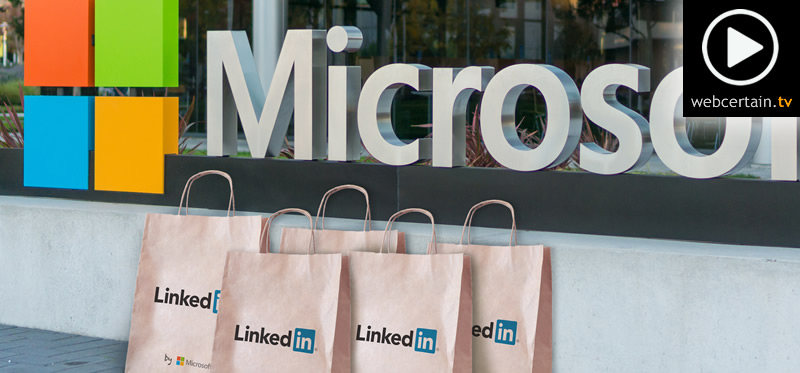Global Marketing News – 14th June 2016
Microsoft buys LinkedIn for $26.2 billion
Microsoft has announced one of the largest tech deals in history, after paying 26.2 billion US dollars for LinkedIn.
In a deal worth 60 dollars per user, the announcement sent the networking site’s shares up by 50% in pre-market trading.
Founded in 2002 and floated on the stock market in 2011, LinkedIn has seen its shares drop in the past year, and reported an 8 million US dollar annual loss recently.
Satya Nadella, CEO of Microsoft, has said that LinkedIn will keep its “distinct brand, culture and independence”, whilst current LinkedIn boss Jeff Weiner will remain in charge.
Mr Weiner said that the opportunity to combine Microsoft’s cloud and LinkedIn’s network would give them the chance to “change the way the world works”.
This is now the latest in a series of takeovers and acquisitions by Microsoft who paid 8.5 billion dollars for Skype in 2011 and bought Nokia’s mobile division for 7.2 billion US dollars in 2013.
Baidu bans ads from binary options brokers
Baidu has decided to ban all paid advertisements from binary options brokers across its network.
This comes as part of a move from the search engine company to remove advertisements from its search results from industries and businesses that it deems ‘risky’.
As Baidu accounts for 70% of all searches in China, this could come as a huge change to financial companies trying to attract clients from the country.
The change comes as an indirect response to demands placed on Baidu by the Chinese internet regulator after the death of a student, who received a controversial treatment he found through a Baidu paid search ad.
Following the regulators’ demands to reduce the number of paid adverts and check adverts credibility more thoroughly, this move from Baidu goes beyond the new rules placed upon them.
Facebook launches online payment system Qwick
Facebook has a launched a new trial that would allow users to pay for products through the site in a few clicks, using a system called Qwick.
In the Asia Pacific region, retailers selling products through Facebook is fairly common, with items sold over social media in Thailand worth around 500 million US dollars a year.
Users began to notice the service last week, when the feature appeared on some high profile retailers’ pages across the site.
It is similar to the peer-to-peer money transfers that were enabled in the US and UK recently and has been said to appear to be more about increasing user engagement rather than increasing revenue.
However, tough competition does already exist in the region, where Line’s payment service and shopping app are already fully implemented.
Google Street View rejected by India
Plans for the introduction of Google’s Street View have been rejected by Indian authorities over concerns about security.
Whilst Street View has been permitted for a few tourist locations in the country, it was confirmed that the application for increased coverage of roads has been denied.
A government official is quoted as saying that “the main concern was security of sensitive defence installations”, whilst it is also believed that planning for the 2008 Mumbai attacks had been done with reconnaissance photos.
Whilst the service has been successful in the countries it is implemented in, it has also caused the same concern around privacy.
As a result, many German homes on the feature have been blurred out and the Czech government has even banned Google from increasing coverage any further in their country.
China and Turkey sign cross-border ecommerce deal
China and Turkey have signed an agreement that will see the introduction of a cross-border e-commerce platform.
The deal means that there will be 76 million US dollars invested into the new platform by businesses from both countries that will develop online trading systems and offline bases.
Using translation software, which will work in real-time and will be embedded in the system, trading along the planned Silk Road Economic Belt and 21st Century Maritime Silk Road will be made easier.
The trading belt and road will cross around 100 cities where advertising for the deal will be introduced soon.
Webcertain’s global marketing news bulletins are daily 5-minute videos, providing marketers with the latest international digital marketing news in an easy-to-digest format.








